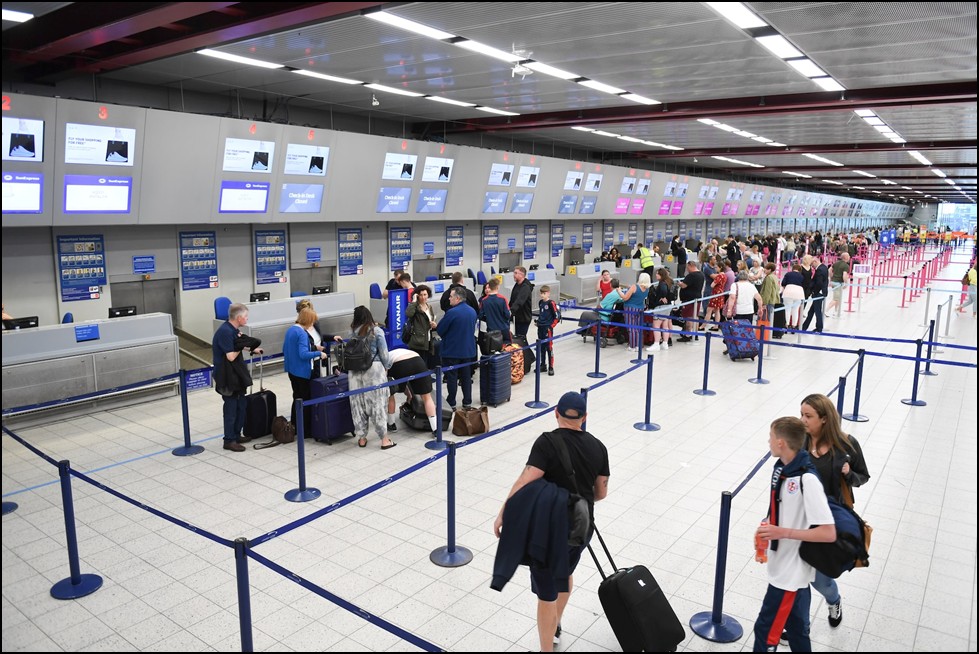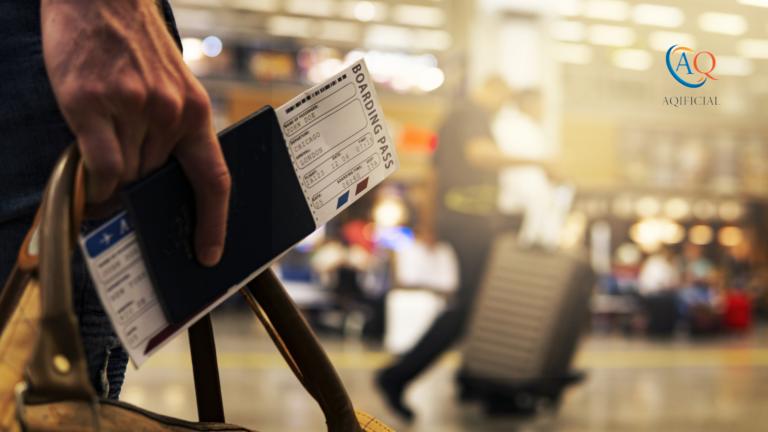Why to Airport check-in counter closes 60-minutes prior flight departure?
“Whether you are about to take your first flight or are a frequent flyer, knowing about the airport check-in counter closing time is a must. Here are a few main reasons that make it so important.”
If it’s your first time boarding a plane, chances are that you might have already been recommended to reach the airport check-in counter well in time.
And if you are a frequent flyer, you may have come across panicky situations where you or some other passengers were denied check-in even though an hour or so was still remaining before flight take-off.
But have you ever wondered why this happens? Or why do the airport check-in counters close so early before boarding? If yes, then this article explains everything you need to know about this topic. We discuss some key reasons which compel airlines and airports to subject airport check-in counters with such strict time limits.
But before moving forward, it is important to understand what exactly an airport check-in is and its function.
What is an airport check-in or checking-in at an airport check-in counter?
An airport check-in means a passenger communicates with the airline their intention to travel or board the plane as scheduled. Airport check-in can be done online as well. Usually, passengers who intend to carry hand baggage prefer checking in online to save them some time at the airport.
In any other case, it can be done after arriving at the airport as well provided there is enough time. Basically, during the check-in process, a passenger’s travel documents, and luggage are screened for boarding the plane.
Difference between airport check-in at the airport check-in counter and boarding
In simple words, airport check-in is the preliminary step toward boarding the aircraft. Although some passengers may confuse one with the other, technically both terms are different.
While airport check-in is what has been explained above, boarding is the final checkpoint before making it into the plane. All passengers having already checked in at the airport check-in counter, are navigated into the aircraft and onto their respective seats during the boarding process.
Reasons why airport check-in counter closes 60-minutes before flight departure
Now that you are aware of how the airport check-in counters work, it is time to move forward. Let us now see some main reasons why the airport check-in counters close as early as an hour before the plane take-off.
1. Ensuring that every passenger gets check-in well before time
Either online or at the airport check-in counter, airports follow a strict policy to only allow boarding to passengers that have checked in. As defined earlier, airport check-in is the process whereby a passenger communicates to the airline their intention to board the scheduled flight. Hence, airports and airlines ensure this by closing the airport check-in counter well ahead of the flight boarding process.
2. Helps prevent overcrowding the airport
One of the key everyday priorities that airport personnel have is to avoid overcrowding the airport under any circumstance. And this is only possible when there are proper time checks implemented at each stage of the process. Hence, closing the airport check-in counter helps prevent overcrowding of the airport.
3. To keep a buffer between checking-in and boarding
Closing the airport check-in counter well before the flight boarding begins signifies that no more passengers will now arrive. In other words, only the passengers awaiting the flight boarding are the ones scheduled and confirmed to take the flight.
4. Makes airport and flight operations smooth and saves cost
Whether it is an ordinary delay in the flight take-off, or a passenger arriving at the last minute at the airport and hence requiring urgent cooperation from the airline and/or airport staff, can be easily described as an event causing unnecessary trouble to both the airport and flight operations.
Such hindrances can be costly at times and thus need to be dealt with firmly and without any compromise. Closing the airport check-in counter is one such rule to ensure cost-effectiveness and smooth flight and airport operations.
For instance, an airport’s air traffic control towers are tasked with allotting the departure time for each flight. Any last-minute favors for checking in and boarding a passenger could result in unusual and otherwise avoidable delays in flight departure.
Similarly, there is a proper procedure before any passenger’s baggage gets transferred from the airport check-in counter to the aircraft luggage compartment. Doing this in a rush at the last minute isn’t possible at all. While you might be allowed to check in supposing that you only have a hand-carry on you, transferring a passenger’s luggage to the aircraft is a completely time-requiring and painstaking process. Thus, denying checking-in to any passengers with hefty luggage after the airport check-in has closed, only seems right.
5. Passengers’ safety and security
Both the airlines and airport management have a high concern for passengers’ safety and security. A little breach could endanger the lives of many at the airport as well as during inflight. Moreover, any safety and security bypass could also risk damaging equipment, machines, and aircrafts worth several millions dollars.
Segregating each process at the airport with a start and an end time is a way to ensure proper safety and security protocols remain intact.
Conclusion
Remember that the airlines and airports both have different policies mentioning the latest time by which passengers must arrive at the airport. Hence, inquiring these details from both sources is a must before leaving for the airport always.
Even if you happen to be a frequent flyer, we recommend making this a habit. This is because airports and airlines also have different rules for closing the check-in for domestic and international flights.
Usually, airport check-in counters close early for international flights and later for domestic flights.
But in addition, passengers should also consider the travel time required in reaching the airport,routes taken, possible traffic jams or necessary stops in between, airport rush, and any other last-minute contingencies which may cause you to risk missing your flight.
Thus, plan accordingly and try to reach the airport as early as possible.












